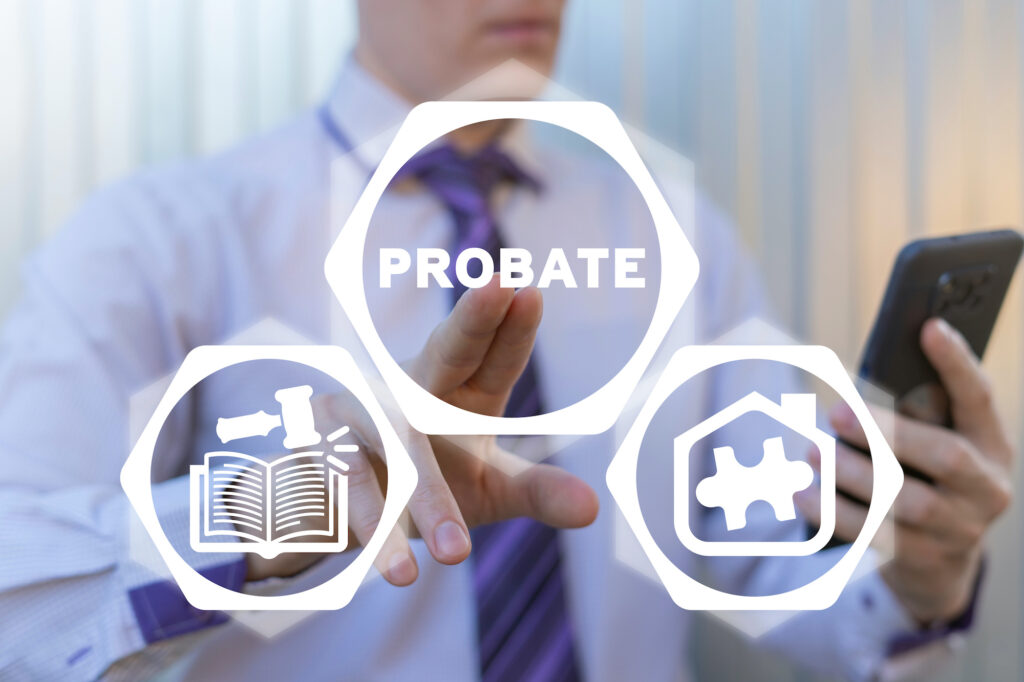
Probate is the legal process of formally recognizing a will. It also refers to the naming or validating of a personal representative (executor). This person administers the estate. Also, they distribute assets to intended beneficiaries. It also requires paying the decedent’s outstanding debts and federal and state taxes. Each state follows different laws. These laws determine the timeline and necessity of probate. What’s more, they decide whether the fiduciary requires bonding. And they declare which reports lawyers prepare. The probate timeline varies because each experience is unique. No two wills are the same.
Probate Timeline: Prepare and File the Probate Petition (1-4 months)

Filing a probate petition requires :
- A valid will
- The decedent’s death certificate
The personal representative or executor sends beneficiaries an official notice of probate. Each state specifies requirements regarding the notification process. To speed the process, beneficiaries sign a “waiver of process consent to probate.” This consent form advises the court issues relative to the will. Also, beneficiaries forfeit the right to challenge the will and/or executor.
Provide Notice to Creditors (3-6 months) in Probate Timeline

Like all beneficiaries, all creditors must be aware of the decedent’s will. The estate’s personal representative notifies appropriate claim holders via a formal notice to creditors and other firms, companies, or people to whom the decedent owed money. Thus, it is important to follow court rules for notifying creditors. So, discovery regarding the deceased’s outstanding debts is most easily achieved by gathering the remaining bills or requesting a copy of the decedent’s credit report.
Payment of Debts and Fees (6-12 months)

The decedent’s creditors receive notification of the individual’s death with a formal notice of death and notice to creditors. The executor must pay all professional and personal debts from the estate with estate funds. The estate is also responsible for payment of the decedent’s state and federal income taxes before the probate process can conclude.
Asset Inventory (6-12 months)

An inventory of the estate’s assets is a crucial part of the will since it becomes part of the official estate record. Secondly, the task can be time-consuming, particularly if the estate’s records are in disarray. Finally, most asset inventory will include:
- Bank accounts, including savings and checking accounts
- Property and real estate
- Stocks and bonds
- Retirement accounts
- Life insurance and annuities
- Luxury items of significant value, like jewelry, watches, art, and other collectibles
- Intellectual property, including patents, trademarks, copyrights, software databases, and design rights
- Online line business ventures that produce income or have stand-alone value
Asset Distribution (9-18 months) in Probate Timeline

Before asset distribution, the estate’s executor should make every effort to pay all outstanding debts. After bills are paid, and the remaining assets are accounted for. What’s more, some state probate law dictates the distribution of assets occur only after the probate hearing. Thus, concluding the probate hearing first prevents the opportunity for someone to threaten the will’s validity.
The Estate Closing (9-24 months)

Probate can conclude when all creditors are paid, taxes are filed, and assets are sold or distributed. After finalizing the executor’s duties, the probate court judge then issues the final order of discharge of the personal representative. Finally, this court action officially closes the estate.
About Skvarna Law Firm in Glendora and Upland, California
Let a skilled attorney assist with your estate plan. Contact us today to learn about your options (909) 608-7671. We operate offices in Glendora and Upland, California. We provide legal services for individuals living in San Bernardino, Los Angeles, Orange, and Riverside Counties. This includes the cities of Upland, Ontario, Rancho Cucamonga, Fontana, Colton, Rialto, Chino, Chino Hills, Glendora, Claremont, Montclair, Pomona, La Verne, San Dimas, Azusa, Covina, West Covina, Diamond Bar, Walnut, La Puente, Corona, Norco & Mira Loma. Visit SkvarnaLaw.com to learn more.


